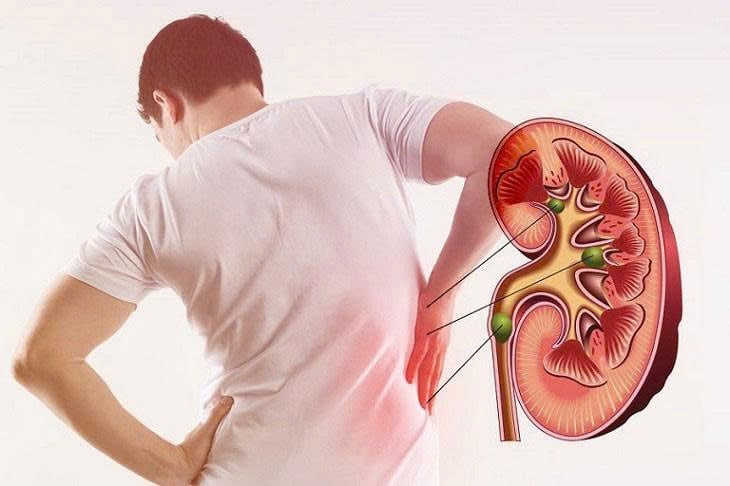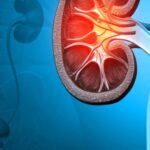What is Kidney Failure?
Kidney failure, or renal failure, refers to the decline in kidney function, impairing the organ’s ability to effectively filter waste and regulate fluids in the body. It is a serious chronic condition that can progress insidiously over an extended period without one’s knowledge.
The kidneys play vital roles in regulating blood pressure, maintaining electrolyte balance, producing hormones, and eliminating waste through urine. When kidney function diminishes, toxic substances accumulate in the blood, posing severe consequences for the entire body.
According to medical experts, kidney failure can occur in two forms: acute kidney failure (developing rapidly over days or weeks) and chronic kidney failure (a slower, progressive condition). Chronic kidney failure is the more prevalent and insidious form, as initial signs are often subtle and easily overlooked.
In the early stages, the kidneys may compensate for the loss of function, leading to a false sense of security. However, once kidney function declines below 50%, recovery becomes exceedingly challenging. Early detection and timely treatment are crucial, as they can prevent progression to the advanced stage, where dialysis or a kidney transplant may be necessary for survival.

Here are five early warning signs of kidney failure that you shouldn’t ignore:
1. Loud Snoring and Sleep Apnea
One of the less suspected manifestations of kidney failure is sleep apnea, characterized by pauses in breathing during sleep and loud snoring. Individuals with chronic kidney disease are prone to sleep apnea, which leads to oxygen deprivation in the brain and increases the risk of high blood pressure and cardiovascular disease. If you find yourself consistently snoring abnormally, don’t take it lightly.
2. Physical Weakness and Prolonged Fatigue
Anemia is a common complication in kidney failure patients. When the kidneys are damaged, they produce less erythropoietin, a hormone that stimulates red blood cell production. As a result, the body becomes oxygen-deprived, leading to fatigue and lethargy, even with adequate sleep and a healthy diet. This is a significant symptom that warrants attention.
3. Unexplained Skin Rashes and Itching
Impaired kidneys allow toxic waste to build up in the blood, often resulting in skin problems such as rashes, itching, and hives. These symptoms can be easily mistaken for common skin allergies. However, if they persist and do not respond to typical treatments, it’s advisable to get your kidney function checked.

4. Lower Back or Hip Pain
The kidneys are located in the lower back region, alongside the spine. When there is kidney damage, individuals often experience dull or sharp pain in the lower back, sometimes radiating to the hips or lower abdomen. This is a characteristic sign of early-stage kidney failure but can be misattributed to spinal issues or sciatica.
5. Shortness of Breath and Unusual Breathlessness
Breathing difficulties indicate fluid retention or anemia. In kidney failure, excess fluid accumulates in the lungs, impairing gas exchange. Additionally, low red blood cell counts reduce oxygen-carrying capacity, leading to shortness of breath and unusual breathlessness during mild exertion.
Expert Advice

According to Master of Science in Medicine, Dr. Hoang Thi Thuy (Medlatec General Hospital), the initial signs of kidney failure are often subtle and easily overlooked. Therefore, individuals with risk factors such as diabetes, high blood pressure, obesity, being over 40 years old, or a family history of kidney disease should undergo regular kidney function tests.
Simple tests like blood and urine examinations and kidney ultrasounds can help detect kidney damage early on. Additionally, adopting a low-sodium diet, controlling blood pressure and blood sugar levels, and refraining from the indiscriminate use of painkillers and long-term antibiotics are effective ways to protect kidney health.
Kidney failure is no longer a rare condition and can affect people of all ages. Recognizing these five early signs of kidney failure is crucial, as it enables early diagnosis, effective treatment, extended lifespan, and improved quality of life.
The Man Who Discovered a Dangerous Illness: A Warning Against Common Eating Habits
“A routine check-up revealed a startling truth for this man. His kidney health was in jeopardy, and the doctor’s stern warning shed light on a common mistake. Unbeknownst to many, their dietary habits could be silently harming their kidneys. This story serves as a stark reminder that even the most subtle lifestyle choices can have significant consequences on our health.”








































